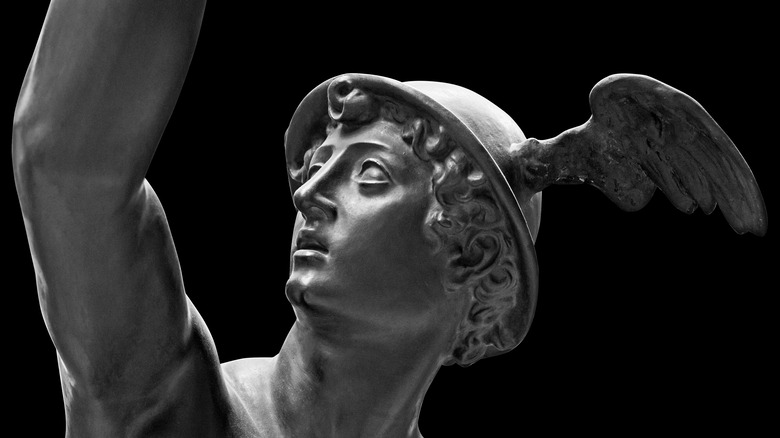How Did May Get Its Name?
The lusty month of May was, like the other months of the year, first named in the Roman calendar system, according to Almanac, where it was referred to as "Maius mēnsis," Maia's month, (per Dictionary). Unlike the later months, which are named for numbers, May is thought to be named for a Greek and Roman mythological figure: Maia, the eldest of the Pleiades, the nymphs who make up the constellation of the same name (via Theoi).
Maia and Zeus are the mother and father of Hermes, the messenger of the gods. Maia was also the adoptive mother of Arcas after his mother had been turned into a bear. Maia was the goddess of nursing mothers and sometimes also associated with Gaia, the earth goddess, according to Theoi. By some accounts, Maia was adopted easily by the Romans because they had a separate, unrelated goddess named Maia — Maia Majesta, the goddess of spring and fertility. As ancient Romans adopted Greek culture, they combined the two goddesses into a single figure.
May in Ancient Rome
Though the goddess Maia is widely recognized as the source of May's name, including in the etymology by Merriam-Webster, there are alternate theories as well. According to the University of Chicago, Roman scholar Marcus Terentius Varro believed that the name of May came from the word "maiores," meaning elders, while the following month of June took its name from "iuniores," meaning younger people. The more common explanation for the name of June, however, is that it comes from the important goddess Juno — the Roman equivalent of Hera and the wife of Jupiter (that is, Zeus).
After the festival-filled month of April, May was a busy month of agricultural work in Ancient Rome. The month did include, however, what might be described as their version of Halloween: Lemuria, a festival of the dead (via HistMyst). Because of this, Romans considered it bad luck to get married in May.

